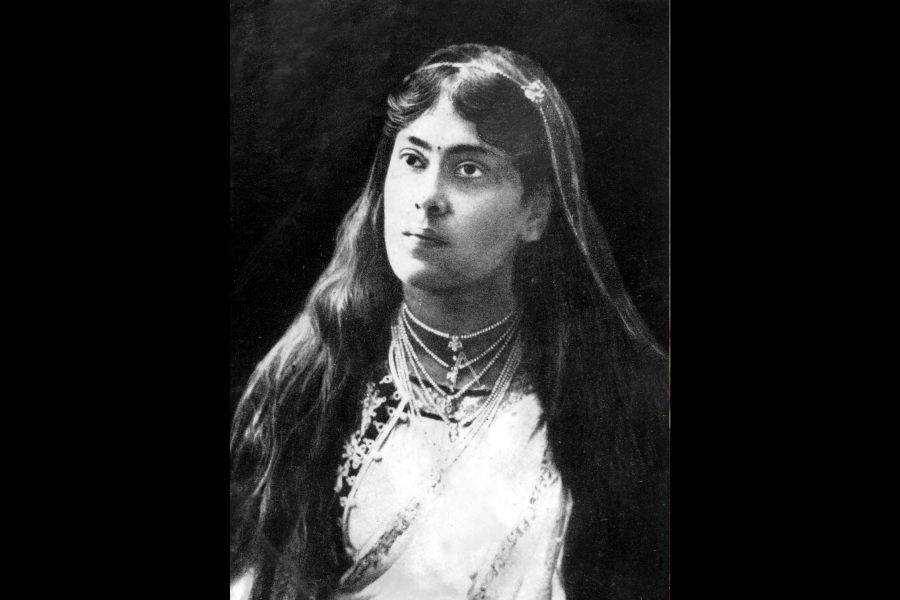Generations to come will scarcely believe that such a one as this ever in flesh and blood walked upon this earth.” Albert Einstein’s famed sense of Gandhi is perhaps more relevant than ever as we approach his 75th death anniversary. Over the past seven-and-a-half decades, the legion of Gandhi fans has increased across the world. Their ranks include rights activists like Martin Luther King Jr, politicians from Nelson Mandela to Barack Obama and even pop icons such as John Lennon. In India, he was deified for over a century but in recent times it has become something of a trend to malign and misinterpret him and his philosophy.
Gandhi never hid the fact that he was a human being, made of flesh and blood like any other, and prone to follies and foibles. He knew that his politics and philosophy had flaws. Neither did he have any illusion about his imperfect personal relationships. He has been ridiculed for his unusual experiments with sexuality and had drawn flak for relationships with women close to him. Perhaps most misunderstood among these was his connection with Sarala Devi, a firebrand political activist, freedom fighter and educationist.
Sarala Devi (nee Ghoshal) was the daughter of Swarnakumari Devi, writer-editor and Rabindranath Tagore’s elder sister. Her father Janakinath Ghoshal was one of the founding members of Indian National Congress. Born in 1872, she was three years younger to Gandhi. Although she had a keen interest in physics, she had to graduate in English literature from Bethune College because women were not allowed to study science in those days. Then she took up a job as a teacher in faraway Mysore to stay “away from the cloying atmosphere of her home” as she later wrote in her memoirs Jiboner Jhorapata (Life’s Fallen Leaves).
For Sarala Devi, activism started rather early; she was a bit of an outlier in the Tagore household for her iconoclastic ways. She set the stage for militant nationalism in Bengal and later fought for women’s suffrage rights.
Gandhi first met her at the Congress session in 1901, where she was part of a choir singing patriotic songs. The acquaintance turned into friendship in 1919. By then she was married to Rambhuj Dutt Chaudhuri, a lawyer, journalist and freedom fighter based in Lahore. Gandhi paid a visit to the family house of the Chaudhuris during his long stay in Punjab.
Gandhi’s grandson Rajmohan Gandhi wrote in the biography Mohandas: A True Story of a Man, His People and an Empire, “Gandhi was clearly dazzled by her personality and seemed to fantasise that providence desired them to shape India into a new design… he echoed her husband’s compliment that she was a ‘great shakti’, or goddess.”
The bond between the two has been systemically misconstrued by historians, biographers and journalists giving it a scandalous twist, especially based on Gandhi’s use of the phrase “spiritual marriage” in a letter he wrote to his friend Herman Kallenbach. Gandhian scholar Martin Green’s “psychoanalysis” even suggested that Gandhi was ready to divorce his wife Kasturba so he could marry Sarala Devi.
Rajmohan Gandhi set the record straight with The Telegraph (see accompanying piece) saying that his grandfather had actually “imagined a non-physical partnership” with Sarala Devi in order to “enable an early fulfillment of his dreams for India”.
The relationship was most objectively analysed by feminist historian Geraldine Forbes in her book Lost Letters and Feminist Histories: The Political Friendship of Mohandas K. Gandhi and Sarala Devi Chaudhurani. She presented her arguments through Gandhi’s letters — 79 of them — and four of Sarala Devi’s, which had been shared by Sarala Devi’s son Dipak.
Forbes tells The Telegraph, “When he gave me the letters, he said he
worried that they would be misinterpreted. He was aware that the terms ‘love’, ‘love letters’ and so on could be construed in conventional erotic terms. He said he trusted I would look at them in their context.”
Based on the letters — despite frequent mention of the word love and Gandhi’s sign-off as “Law Giver” — Forbes stresses that Gandhi wished to mentor her into a woman national leader and his close political partner.
On March 23, 1920, he wrote from Delhi, “It is early morn and you occupy my first attention. You are therefore [missing word] to me, but I want you to be that always and to the whole of India. This can only happen if you will realize yourself and if Panditji [Rambhuj] will let you.”
The letters reveal that despite Gandhi’s effort to mould Sarala Devi into Gandhi’s design, she frequently resisted his efforts to remake her. She was independent-minded and an “exceptional woman — educated, strong, assertive and opinionated”.
Says Forbes, “Sarala Devi was not the obedient pupil Gandhi wanted. He thought she had the potential to be India’s woman leader, he wanted her to complete a programme — laid out by him — to become that leader.” She did many things he wanted, for instance wear khadi, “but they were the things she too wanted”. She often defied Gandhi’s diktats and disagreed on various issues. “S.D. had long argued that women’s voices and issues were always placed on the back burner, never to be prioritised,” says Forbes.
It is evident that in spite of his progressive vision, Gandhi hadn’t been able to throw away his patriarchal mindset in his design of a woman leader.
In other words, Gandhi failed to accept Sarala Devi as an independent woman. That was the reason their friendship petered out in a year. Gandhi admitted that he
himself had been “unworthy to have that companionship”.











